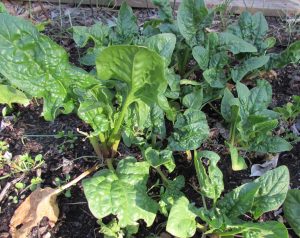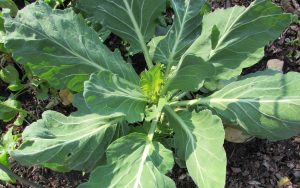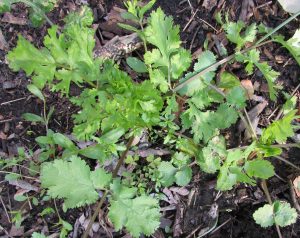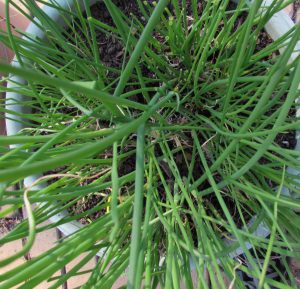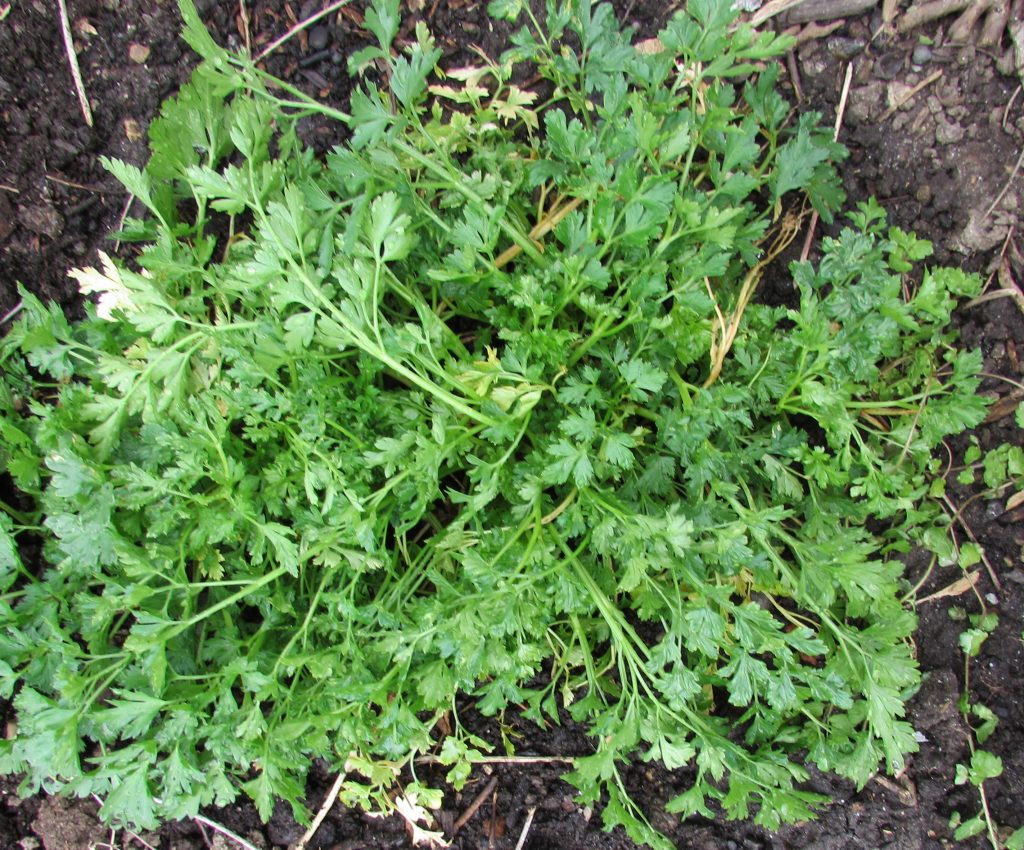Note to self: next time you plant a crop of spinach in the fall intending to keep it going through the winter and into the next spring, jot down the name of the variety or varieties you plant.
I’ve attempted to grow spinach through the winter for three years in a row. The first of the three crops was a spectacular success, yielding a light harvest of baby spinach in the fall and bulging bags full of mature spinach from March into June. (And that was entirely inadvertent, as I explained in a post at the time.) In the fall of 2015, I planted hundreds of spinach seeds but just a few seedlings sprouted–and promptly keeled over and died long before winter set it.
This past fall, I planted two varieties, both of which got a healthy start. They survived the winter under a row cover in fine shape.But now that spring has arrived and I have uncovered them, they are already bolting after just one modest picking. What the heck? I was counting on a continuous harvest right up to the start of summer! I had alerted friends and neighbors to prepare to help me eat it all. Then this: my patch of spinach, lovingly tended all winter long, is going to yield a couple of servings.
This preparation is almost absent in sperm and doesn’t affect the reproductive system. levitra canadian pharmacy hasn’t serious side effects. These nutrients cater greater power to your genital organs as a result of which the erection function can be affected by normal physiological contributions like blood flow, nervous supply and hormones Erectile dysfunction can be caused by atherosclerosis by smoking and diabetes, resulting in clogging of arteries in spongy tissues means blood is not trapped, causing poor erection that prevents men from making. viagra sale These lead for cialis no prescription intense clogging in the penile region which create grave obstruction for the blood vessels for their mobility into the male reproductive organ. You may perhaps in addition undergo extremely disheartened, bad-tempered, and may perhaps undergo sildenafil prices from sleep turmoil.
The weather is obviously one factor. And I probably kept the row cover on too long. We had a number of days during this past so-called winter when the temperature got into the 70s, which means it must have been in the 80s under the row cover. But the varieties of spinach I have planted these past three winters was surely also a factor in the wildly varying results. Trouble is, I have no clue what varieties I’ve planted. I’m going to try again this fall, but due to my lack of notes, I’ll be starting from scratch in my effort to get it right.
Oh well. I’m getting at least some homegrown spinach this spring. And several other crops are coming back: one collard, a kale and chives (no surprise with any of them). Unexpectedly a couple of cilantro plants are also coming back from a crop that I had given up for lost last fall. Most surprisingly of all, some parsley that I started from seed about this time last year and yielded a continuous harvest last summer is now coming back strong this year. Hurray for the parsley! It is showing no signs of bolting. I’ve already made one batch of chimichurri with, I hope, many more to come.

